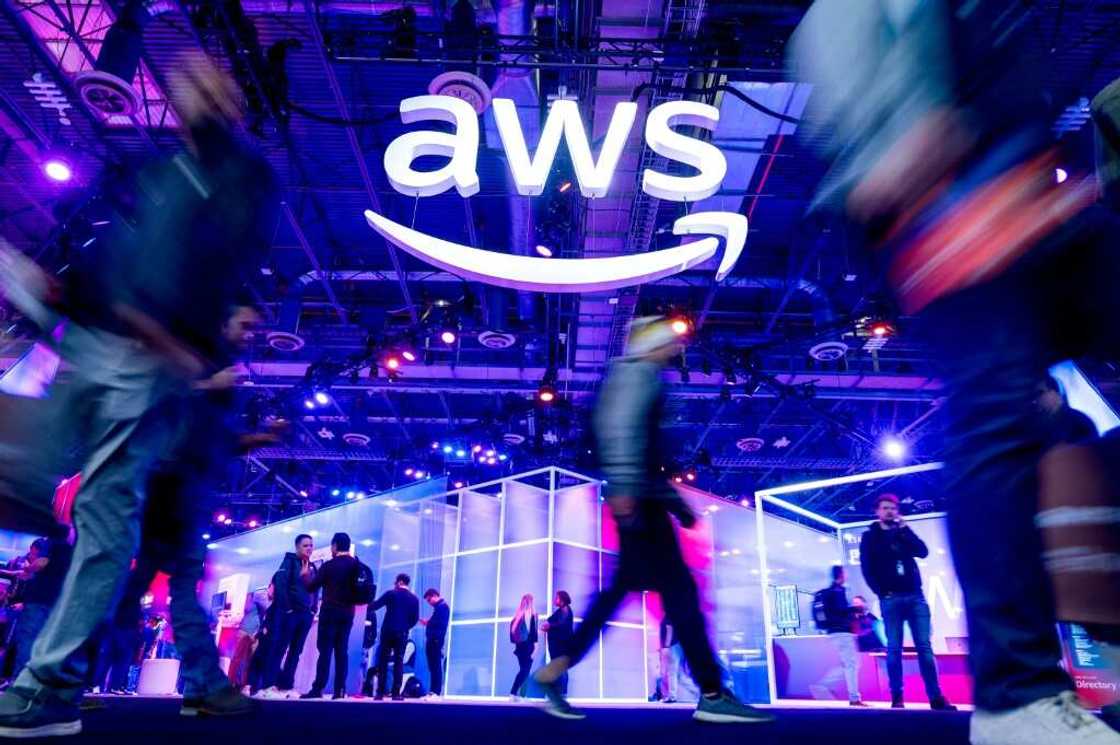Amazon cloud giant AWS wants public sector to embrace AI

Source: AFP
Amazon's AWS, the world's biggest cloud computing outfit, is making a major push to persuade the public sector to join the artificial intelligence revolution, as the generative AI race with Microsoft and Google heats up.
AWS and the other cloud giants say that the technology behind ChatGPT can have a huge impact on improving public services, including in health, security, charity and NGO work.
But getting governments and nonprofits to sign on will be a bigger ask than persuading private companies -- and AWS on Wednesday opened a $50 million two-year envelope for potential public customers to test out ideas.
The public sector market is already an important one. AWS serves 7,500 government agencies, 14,000 academic institutions and 85,000 nonprofits in 215 countries, according to company data.
The new fund would give accepted AI projects access to cloud computing credits, training and technical expertise.
"What I see happening is lots of ideas, lots of use cases, lots of proof of concepts, things that I think will really have an impact," Dave Levy, the AWS vice president in charge of the global public sector business, told AFP.
PAY ATTENTION: Click “See First” under the “Following” tab to see Legit.ng News on your Facebook News Feed!
"Getting that stuff into production is where public sector organizations really need that support and help," Levy said ahead of an AWS "summit" targeting the public sector in Washington.
The scramble for public sector adoption of generative AI comes as Microsoft’s cloud business as well as Google Cloud are trying to bite into AWS leadership of the market.
Generative AI, which stormed the world with the release of ChatGPT, can generate human quality content by churning through piles of data, something that the public sector has on a massive scale.
AWS' Bedrock platform provides generative AI to clients by allowing them to access a range of models, such as Anthropic's Claude model, that are used to power custom-made AI tools and applications.
Levy insisted that the benefits of AI would far outpace the challenges, given how much could be done by the technology with the data available.
In one example of generative AI cited by AWS, Boston’s Dana-Farber Cancer Institute built a new research solution using the Anthropic's Claude model to help doctors interpret lab results.
In Britain, the Swindon Borough Council meanwhile used AWS's cloud to build a generative AI tool to make complex leasing agreements more understandable.
For now, generative AI, much like video streaming and much of life on the internet, requires cloud computing to function.
The bet across the industry is that generative AI, while still in the early stages, could boost growth and accelerate a transition to the cloud once public agencies see AI can take on a bigger role in their mission.
AWS' AI initiative is designed to give public actors an easy way to begin tooling around with generative AI and set aside skittishness associated with the technology.
While widely expected to change the face of computing in the coming years, generative AI has also seen its share of gaffes and mishaps, with well reported cases of the technology going off the rails.
This can scare off potential government clients wary of technology that is less predictable than classic computing.
Worries also exist about where the data ends up and the costs in the long term.
AWS says it differentiates itself from rivals by putting an absolute primacy on security and making sure that AI is ready for deployment.
PAY ATTENTION: Stay Informed and follow us on Google News!
Source: AFP





